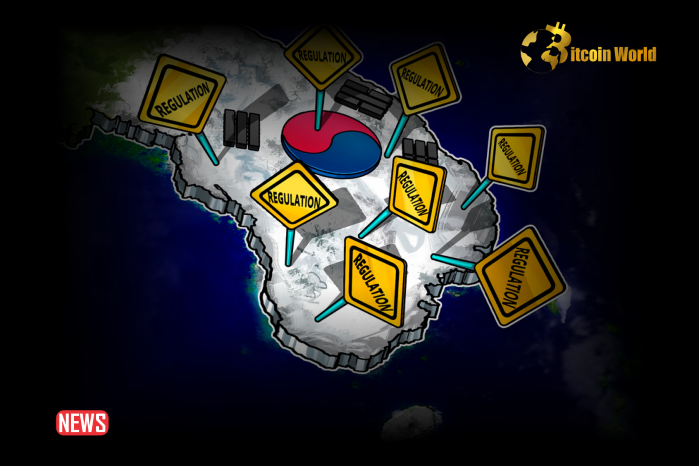- South Korea’s crypto exchanges, led by DAXA, are preparing to comply with new investor protection regulations, which will take effect on July 19.
- Established cryptocurrencies from recognized overseas markets with robust regulations will benefit from a more lenient screening process.
- Crypto-related crime is rising in Korea, necessitating new regulations to protect investors and both deter and penalize crime.
A consortium of 20 South Korean crypto exchanges, including giants like Bithumb and Upbit, has alleviated concerns over the impact of new digital asset regulations, stating that mass delisting are unlikely.
This comes amidst a rising tide of crypto-related crime in South Korea, prompting the need for enhanced regulations to safeguard investors and combat illicit activities effectively.
On Tuesday, South Korea’s 20 crypto exchanges and their representative organization signed a new code of conduct for local crypto firms, necessitating a reevaluation of over 1,300 cryptocurrencies already traded on local exchanges.
South Korea Turns A New Leaf On Crypto Exchanges
Existing tokens will also undergo reevaluation within the six-month grace period, ensuring compliance with the new standards.
Digital Asset Exchange Alliance (DAXA) emphasized that the stringent rules aim to curb illegal activities and enhance market integrity, supported by measures such as cold storage for deposits and insurance for user protection.
The industry trade body reassured that the likelihood of widespread delisting remains low, given the exchanges’ proactive adherence to regulatory standards.
According to a press release, the newly published self-regulatory rules for industry players will be enforced on July 19, the same day South Korea’s inaugural regulatory framework on crypto investor protection goes into effect.
DAXA assured stakeholders that these reviews aim to uphold regulatory standards without causing simultaneous delisting. Digital Asset Exchange Alliance adds, “All new token listings will adhere to the Protection of Virtual Asset Users Act.”
DAXA is outlining guidelines jointly developed with member exchanges. These guidelines emphasize issuer reliability, user protection measures, and regulatory compliance.
Special Screening For Established Digital Assets
A more lenient screening process termed the “alternative screening plan,” will apply to cryptocurrencies traded for over two years in recognized overseas virtual asset markets with robust regulatory frameworks. DAXA is currently identifying eligible markets, including those affiliated with the International Organization of Securities Commissions (IOSCO).
South Korea, a pivotal player in the global crypto landscape, saw its Won currency rank as the most traded fiat pair in the first quarter of the year, exceeding $456 billion in trading volume. Upbit, the country’s largest exchange, continues to dominate, ranking among the top 20 exchanges worldwide by daily volume.
Crypto-related Crime In South Korea
According to the Korea Financial Intelligence Unit (KoFIU), by mid-2024, South Korea is projected to have approximately 6 million crypto investors, constituting about 12% of its population.
This surge in investor numbers coincides with a notable increase in crypto-related criminal activities, prompting authorities to implement stricter regulations to safeguard investors and combat fraudulent practices.
According to the KoFIU, Korean digital asset exchanges pointed out almost 50% more suspicious transactions in 2023 compared to 2022.
Still, inflows to illegal addresses worldwide are down in nearly every category, but no form of crypto crime has suffered more than scams. Through June, crypto scammers took in over $ 3 billion less in 2023 than in 2022, just over $1.0 billion in the year.
The Virtual Asset User Protection Act, South Korea’s inaugural crypto legislation, seeks to combat illegal activities within the market, enforce transparency, and safeguard user investments.
It mandates exchanges to store over 80% of deposits in cold wallets and participate in insurance programs for user compensation in case of security breaches.
As South Korea solidifies its regulatory framework, the global crypto community watches closely, acknowledging its influence as a critical market and its commitment to fostering a secure and compliant digital asset ecosystem.
Disclaimer: The information provided is not trading advice, Bitcoinworld.co.in holds no liability for any investments made based on the information provided on this page. We strongly recommend independent research and/or consultation with a qualified professional before making any investment decisions.

